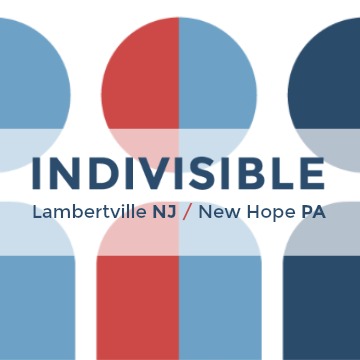Contributed by Amara Willey.
Over the last decades, news has gotten measurably more negative, and politicians have harnessed the power of fear to sway voters. How can we hope to unify our country when the information we receive from social and news media and from our leaders seeks to further divide us?
As a country we have ventured into a period of tribalism, of us against them rhetoric, on both sides of the aisle. We speak of red, blue and “battleground” states, as though all people living in those states are homogenous in their beliefs.
Harvard professor of psychology Steven Pinker wrote in The Guardian in 2018, “For decades, journalism’s steady focus on problems and seemingly incurable pathologies was preparing the soil that allowed Trump’s seeds of discontent and despair to take root… One consequence is that many Americans today have difficulty imagining, valuing or even believing in the promise of incremental system change, which leads to a greater appetite for revolutionary, smash-the-machine change.”
As long as news organizations have an economic reason for sensational headlines and a negative slant, our system will be skewed by our information outlets.
“Because crisis stories sell better, they dominate our daily news feeds and social media diets,” Pinker explained. “Worse, they also mislead us from correctly assessing threats and risks in everyday life.”
We may think that as consumers of current events, we are better informed and so better able to act, but Pinker believes the opposite to be true.
“The consequences of negative news are themselves negative. Far from being better informed, heavy newswatchers can become miscalibrated. They worry more about crime, even when rates are falling, and sometimes they part company with reality altogether,” cautioned Pinker.
Our country’s addiction to sensational news isn’t new, but rather dates back to the yellow journalism of the 1890s, sparked by competition between New York newspapers. That tradition exists today because it has been an effective tool.
“Politicians and the media very often use fear to circumvent our logic. I always say the U.S. media are disaster pornographers – they work too much on triggering their audiences’ emotions,” said Dr. Arash Javanbakht, Assistant Professor of Psychiatry at Wayne State University in Detroit, MI. “They are kind of political reality shows, surprising to many from outside the U.S.”
Politicians understand the power of fear-based bombast, and they use it because it’s convenient to do so.
“Fear is easy,” Rick Wilson, co-founder of the Lincoln Project, was quoted as saying in The Atlantic in November of 2016. “Fear is the simplest emotion to tweak in a campaign ad. You associate your opponent with terror, with fear, with crime, with causing pain and uncertainty.”
Having been undermined by both Republicans and Democrats using fear tactics and selective information, our democracy is currently in a place of deep divide.
“A negative and biased information environment that mobilizes our tribal instincts often requires fear as a vehicle to solidify group cohesion,” Dr. Javanbakht noted in Psychology Today just a few days before the January 6 events on Capitol Hill. “Fear-based thinking is ubiquitous on both sides of the political divide: Republicans fear that Democrats will confiscate their guns and banish Christianity. Democrats fear that Republicans are turning the country into a theocracy. Regardless of one’s political tribe, fear is what underwrites these opinions about the ‘other side’.”
Frank Sharry, a proponent of immigration reform since the 1980s who heads the group America’s Voice, has revised his understanding of the issue since the rise of Trumpism, The Atlantic reported. Having previously thought of the issue as a policy dispute, he now sees it as more profound and primal, he said.
“Ten years ago, when [John] McCain and [Ted] Kennedy were working together on comprehensive immigration reform and George W. Bush supported it, I really thought this was a rational policy disagreement that was headed toward a logical compromise,” Sharry said. “Now I see it as deeply cultural. It’s racially charged, it’s tribalism, it’s us-versus-them. It’s a referendum on the face of globalization, on a moment of demographic and cultural change.”
As we know, the pandemic and the economic uncertainty combined with the lockdown was just the crucible that brought these cultural tensions to the surface with the BLM protests, anti-protests, and finally the riot on January 6.
“When people are under stress, the hind brain takes over,” Wilson said. Trump, Wilson believes, has expertly manipulated many people’s latent fear of the other. “Fear of Mexicans, fear of the Chinese, fear of African Americans—Donald Trump has very deliberately stoked it and inflamed it and made it a centerpiece of his campaign.”
If using fear-based political ads and language is easy and effective, how can we change the political culture?
“There is evidence from 2002 and 2004 that people’s concern about terror was a very good predictor of their voting habits, even apart from partisanship,” Shana Gadarian, a political scientist at Syracuse University and the author of The Politics of Threat: How Terrorism News Shapes Foreign Policy Attitudes.
In study after study, the characteristic most predictive of a person’s political leanings is his or her tolerance for ambiguity. “The more intolerant of ambiguity you are—the more you seek control over your surroundings, certainty, clear answers to things—the more you tend toward conservative preferences,” said Anat Shenker-Osorio, a liberal communications consultant and cognitive-linguistics researcher, in Rolling Stone.
Shenker-Osorio is working to rewire the left’s voter communication tactics. She wants to give voters back their power to decide the election.
“I’m not saying that we Democrats and progressives could get rid of this discourse. I’m not saying that we’re in charge of everything that’s said. But we are in charge of what we say,” she explained. “And if you want there to be a different story, you have to tell a different story. If you’re responding to law and order — rioting is not protesting, looting is not protesting — if that’s what you’re talking about, that’s what’s coming to your mind. You’re reinforcing what they’re saying.”
In studying Trump voters on behalf of MoveOn.org, Shenker-Osorio found that they responded strongly to the idea that he would bring order and control to a chaotic world.
“The biggest reason is fear. When you are terrified, you cling to what you know. You cling to what’s familiar. And you try to triangulate your way into some sort of pretzel that you think is going to be palatable enough to some people to eke out over the line,” Shenker-Osorio said. “When in fact what you’re doing over time is cementing the conservative worldview — and you’re not winning. That’s the saddest part: It doesn’t even work strategically, forget morally.”
Instead, Shenker-Osorio is a proponent of a technique called deep canvassing, of having honest, nonjudgmental conversations with someone who disagrees with you in an attempt to find common ground and connection, and to lead someone to their own conclusions, not batter them over the head with what you want them to believe, she said.
This is an experiment that has worked in a number of situations, including for TakeAction Minnesota, which tried the technique. Elianne Farhat, its executive director, said, “For too long our politics have been run by fancy consultants on the coasts narrowing our politics down to the most persuasive sound bite they could possibly capture in the moment. That type of politics is a real disservice to our people and to the democracy we want to live in.”
Farhat continued, “Putting this type of tactic back at the center, deep conversation that shares stories and connects people across their differences, is the thing that we need in our country at this moment.”
Dr. Javanbakht echoed this idea: “To win us, politicians, sometimes with the media’s help, do their best to keep us separated, to keep the real or imaginary “others” just a “concept.” Because if we spend time with others, talk to them and eat with them, we will learn that they are like us: humans with all the strengths and weaknesses that we possess.”
Fear robs our constituents of their power. We empower people when we remind them that they matter and that their voice counts.
Michael Podhorzer, a senior adviser to the president of the AFL-CIO, told New York Times columnist Michelle Goldberg that the union’s polling data showed “we do Trump’s work for him when we respond to his threats rather than remind voters that they will decide who the next president will be if they vote.”
ACTION: What can we personally do to de-polarize our society?
Here are some suggestions of individual training models to begin to recognize and support larger changes in our society:
- Be an information sleuth. Choose media outlets that inform without dramatizing news, such as public supported radio and television (NPR, PBS). Be aware of what reporters are choosing to report and what they aren’t. Seek out sources that reporters use to find news, such as White House briefings and academic experts. Fact-check stories before you spread them, by running them through Snopes or finding multiple sources with different perspectives.
- Celebrate the progress we have made. Choose to focus on the glass half full rather than half empty. Catch people at their best and thank them.
- Seek non-duality. Not every story has two sides – some have one; others might have seven. Other Americans are not our enemies; they are our neighbors. Dividing the country into “red” and “blue” states confuses us. Our fellow countrymen have the same concerns we do (safety, comfort, integrity) though they may have different strategies for getting those needs met. Reject the idea that some people are wrong, and some are right.
- Co-operate rather than compete. We have all been indoctrinated to believe that competition is necessary and enjoyable, from playing sports in school to climbing the corporate ladder. If you win, I lose. Instead, train yourself to find ways to partner with others: play co-operative board games, reach out to people whom you don’t agree with, find compromise rather than overruling others (which is the way many of us were parented).
- Abstain from war terminology. Words have power to shape our thinking and our behavior. Refrain from phrases like “battle for the soul of our nation,” “war on drugs,” “battleground state,” and “Capitol insurrection.” If you want to live in a peaceful nation, wean yourself from violent language.
- Use the power of now. Stay in the present. Don’t focus on past grievances or future fears. Keep asking yourself, “Am I okay right now?”
- Deep canvassing. Seek further training in active listening and personal storytelling. Candidates are already starting campaigns for the midterms. Honing our skills now to help them will be vital.
- Sources:
https://theconversation.com/the-politics-of-fear-how-it-manipulates-us-to-tribalism-113815 - https://www.psychologytoday.com/intl/blog/the-many-faces-anxiety-and-trauma/202101/moving-forward-in-2021-guide-depolarizing-america
- https://www.theatlantic.com/politics/archive/2016/09/donald-trump-and-the-politics-of-fear/498116/
- https://www.theguardian.com/commentisfree/2018/feb/17/steven-pinker-media-negative-news
- https://www.rollingstone.com/politics/politics-features/donald-trump-joe-biden-fear-vote-by-mail-echo-chamber-turnout-2020-election-1066969/
- https://www.rollingstone.com/politics/politics-news/2020-presidential-campaign-tactic-deep-canvassing-1059531/




I really loved this! You covered a lot! The fear factor is so key.
I’m so glad it resonated with you!
I have known the author for some 14 years. From working very closely with her, I know her commitment to recognizing the directions others come from. I have high regard for her analytical ability and her skill in reserving judgment until she has more facts.She can home in on an issue: examine it effectively by researching primary resources.This article reflects those qualities. It engenders hope because it gives sources for how to pursue a route towards beginning to elicit others’ points of view.It is hard work.To be effective, it requires commitment to listening and being vigilant about how we speak. Essential to achieving this is using reliable news sources and carefully checking facts. Thank you Amara Willey for refocusing us.